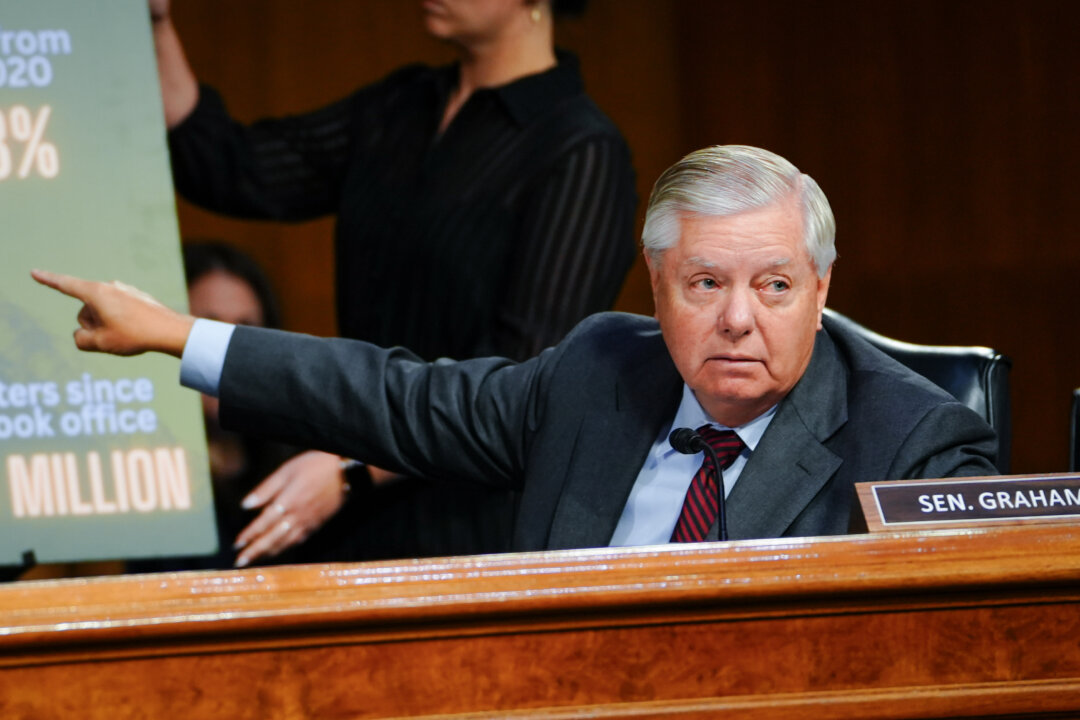Republicans in the Senate and House remain in disagreement about the plan, which prevents any further action.
WASHINGTON—The U.S. Senate will vote on a resolution that will enable Congress to begin passing budgetary legislation that funds many of President Donald Trump’s campaign promises, according to an announcement from Senate Majority Leader John Thune (R-S.D.) on Tuesday.
Many of the initiatives that the Trump administration seeks to undertake—such as constructing a wall along parts of the U.S. border with Mexico, removing illegal immigrants from the United States, and extending the lower income tax rates enacted in 2017—will require Congress to grant new funding.
Due to near-unanimous opposition from the Democratic Party, Republicans are seeking to use a budgetary process known as “reconciliation” to approve such funding, which would allow them to overcome procedural difficulties such as the Senate’s 60-vote cloture requirement that normally impedes most bills.
A reconciliation bill will only require a simple majority in both bodies of Congress to pass, which the Republicans currently hold.
“[The budget involves] securing the border, rebuilding our defense, and unleashing American energy. That starts this week with passing Chairman [Lindsey Graham (R-S.C.)]’s budget,” wrote Thune on X, referring to the resolution sponsored by Graham, who chairs the Senate Budget Committee.
The reconciliation process requires each house of Congress to concurrently pass an identical “budget resolution” that establishes which areas of policy will see funding increases and, correspondingly, where spending will be cut. The Senate’s resolution calls for at least $325 billion in new spending on the U.S. military and homeland security matters, the latter of which includes immigration enforcement.
It is unlikely that Democrats in the House of Representatives will respond favorably should a resolution be passed. The Biden administration also relied on the reconciliation process to pass its $1.9 trillion 2021 American Rescue Plan Act for COVID-19 relief and its 2022 Inflation Reduction Act, scaled back from $3.5 trillion to $740 billion. Both reconciliation bills had zero Republican support and only passed the Senate with Vice President Kamala Harris’s tie-breaking vote.
Currently, GOP leadership in both chambers face a challenge. The House Republican Conference has consistently stated its objections to the Senate’s plans to advance Trump’s agenda in two reconciliation bills, and has written a separate budget resolution with different funding levels to include everything in one package.
“For the House, the one-bill strategy makes the most sense. We have a very diverse conference,” House Speaker Mike Johnson (R-La.) said at a news conference on Jan. 29, following a meeting of House Republicans in Doral, Florida. He confirmed on Feb. 11 that a one-bill strategy would be his conference’s plan, which the House Budget Committee’s resolution reflects.
The reconciliation process cannot proceed unless either house capitulates and passes the other’s resolution, or a compromise is reached and a new resolution drafted.

